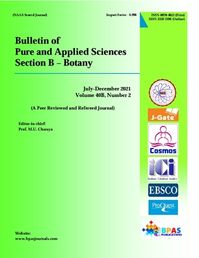The Ascorbic Acid Content of Cabbage (Brassica oleracea)
DOI:
https://doi.org/10.48165/Keywords:
Recommended daily allowance, Ascorbate, Antioxidant, Indicator, End point, Oxidizing agent, ImmunoprotectionAbstract
The antioxidant potential of many plant species have been elucidated. Cabbage is a vegetable that’s widely eaten. It’s unsure whether the raw or cooked state of cabbage is required to meet the recommended daily allowance needed by patient with vitamin C deficiency. This paper discusses the ascorbic acid content of cabbage.
Downloads
References
. Bradford A. 2015. Vitamin C: Sources and Benefits. Live Science. Source: https://www.livescience.com/51827-vitamin-c.html. Accessed: 7/5/2019.
. Carr A, Frei B. 1999. Toward a new recommended dietary allowance for vitamin C based on antioxidant and health effects in humans. The American Journal of Clinical Nutrition 69 (6): 1086-1107.
. Leike H. 1988. Cabbage (Brassica oleracea var. capitata L.). Chapter in Biotechnology in Agriculture andForestry, Vol 6. Crops II (ed. Y.P.S. Bajaj), Springer-Verlag Berlin Heidelberg, 1988.
. UKZN BIOL103 Practical Manual. 2019. University of KwaZulu-Natal, Westville campus, Durban, South Africa.
. Singh, R. 2019. Personal writing. Representing the Republic of South African, my country.




